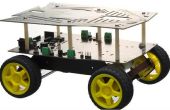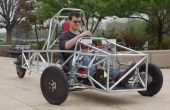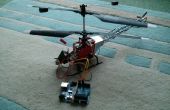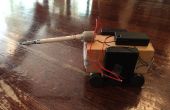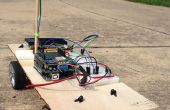Paso 7: programación
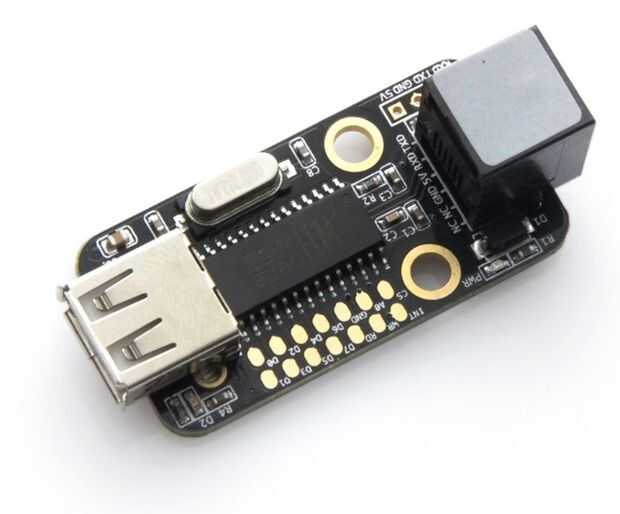
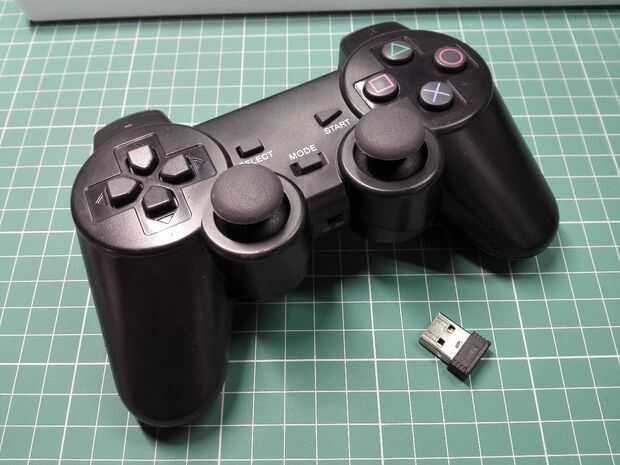
La velocidad de cuatro ruedas de Mecanum es determinada por la velocidad angular
y velocidades en el eje x y eje y del vehículo. Se utiliza un Joystick para controlar la velocidad de la plataforma con la palanca izquierda para la velocidad de traslación y el palo derecho de velocidad angular. Conecte un módulo Me USB Host puerto 3 del Consejo de Orión y luego conecte un módulo inalámbrico módulo Me USB Host.
Descargar biblioteca de Makeblock y ponerla bajo biblioteca de Arduino. Los códigos de Arduino son las siguientes:
#include "Wire.h" #include "SoftwareSerial.h" #include "MeOrion.h" MeUSBHost joypad(PORT_3); MeEncoderMotor motor1(0x02, SLOT2); MeEncoderMotor motor2(0x02, SLOT1); MeEncoderMotor motor3(0x0A, SLOT2); MeEncoderMotor motor4(0x0A, SLOT1); float linearSpeed = 100; float angularSpeed = 100; float maxLinearSpeed = 200; float maxAngularSpeed = 200; float minLinearSpeed = 30; float minAngularSpeed = 30; void setup() { motor1.begin(); motor2.begin(); motor3.begin(); motor4.begin(); Serial.begin(57600); joypad.init(USB1_0); } void loop() { Serial.println("loop:"); //setEachMotorSpeed(100, 50, 50, 100); if(!joypad.device_online) { Serial.println("Device offline."); joypad.probeDevice(); delay(1000); } else { int len = joypad.host_recv(); parseJoystick(joypad.RECV_BUFFER); delay(5); } //delay(500); } void setEachMotorSpeed(float speed1, float speed2, float speed3, float speed4) { motor1.runSpeed(speed1); motor2.runSpeed(-speed2); motor3.runSpeed(-speed3); motor4.runSpeed(-speed4); } void parseJoystick(unsigned char *buf) //Analytic function, print 8 bytes from USB Host { // debug joystick // int i = 0; // for(i = 0; i < 7; i++) // { // Serial.print(buf[i]); // Serial.print('-'); // } // Serial.println(buf[7]); // delay(10); // increase and decrease speed switch (buf[5]) { case 1: linearSpeed += 5; if (linearSpeed > maxLinearSpeed) { linearSpeed = maxLinearSpeed; } break; case 2: angularSpeed += 5; if (angularSpeed > maxAngularSpeed) { angularSpeed = maxAngularSpeed; } break; case 4: linearSpeed -= 5; if (linearSpeed < minLinearSpeed) { linearSpeed = minLinearSpeed; } break; case 8: angularSpeed -= 5; if (angularSpeed < minAngularSpeed) { angularSpeed = minAngularSpeed; } break; default: break; } if ((128 != buf[0]) || (127 != buf[1]) || (128 != buf[2]) || (127 != buf[3])) { float x = ((float)(buf[2]) - 127) / 128; float y = (127 - (float)(buf[3])) / 128; float a = (127 - (float)(buf[0])) / 128; mecanumRun(x * linearSpeed, y * linearSpeed, a * angularSpeed); } else { switch (buf[4]) { case 0: mecanumRun(0, linearSpeed, 0); break; case 4: mecanumRun(0, -linearSpeed, 0); break; case 6: mecanumRun(-linearSpeed, 0, 0); break; case 2: mecanumRun(linearSpeed, 0, 0); break; case 7: mecanumRun(-linearSpeed / 2, linearSpeed / 2, 0); break; case 5: mecanumRun(-linearSpeed / 2, -linearSpeed / 2, 0); break; case 1: mecanumRun(linearSpeed / 2, linearSpeed / 2, 0); break; case 3: mecanumRun(linearSpeed / 2, -linearSpeed / 2, 0); break; default: mecanumRun(0, 0, 0); break; } } } void mecanumRun(float xSpeed, float ySpeed, float aSpeed) { float speed1 = ySpeed - xSpeed + aSpeed; float speed2 = ySpeed + xSpeed - aSpeed; float speed3 = ySpeed - xSpeed - aSpeed; float speed4 = ySpeed + xSpeed + aSpeed; float max = speed1; if (max < speed2) max = speed2; if (max < speed3) max = speed3; if (max < speed4) max = speed4; if (max > maxLinearSpeed) { speed1 = speed1 / max * maxLinearSpeed; speed2 = speed2 / max * maxLinearSpeed; speed3 = speed3 / max * maxLinearSpeed; speed4 = speed4 / max * maxLinearSpeed; } setEachMotorSpeed(speed1, speed2, speed3, speed4); }
![Cómo hacer un vehículo de tres ruedas [chasis robot] Cómo hacer un vehículo de tres ruedas [chasis robot]](https://foto.askix.com/thumb/170x110/3/4c/34ccca77f5a793857499558645805d4d.jpg)
